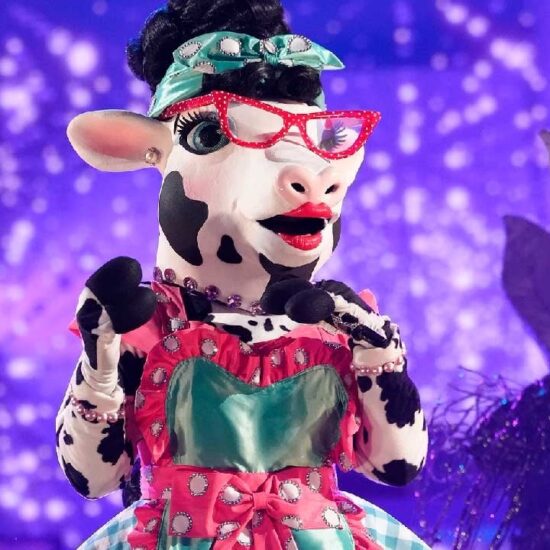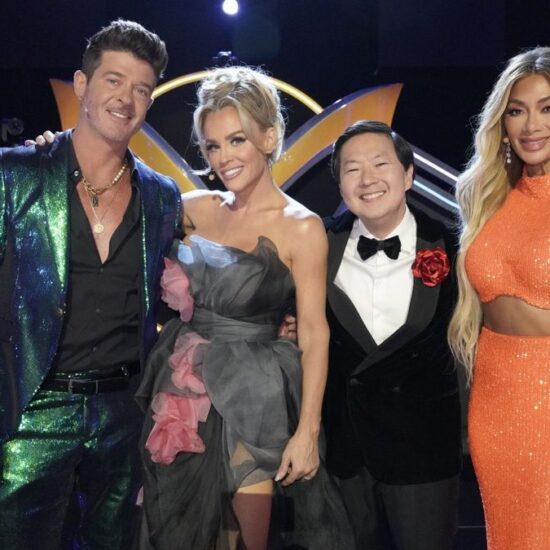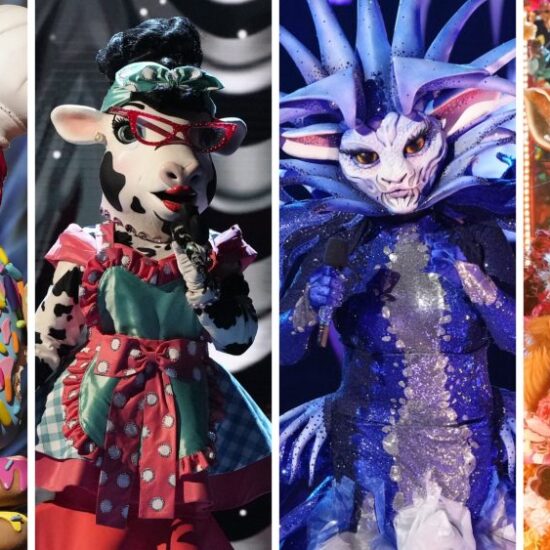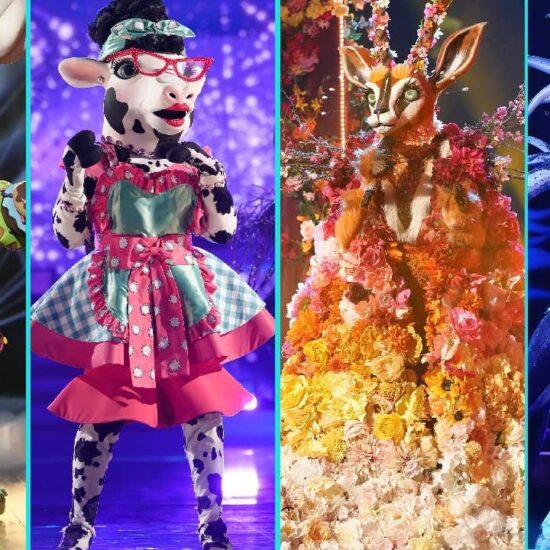

Every so often, a stray quote or plot line from Riverdale finds its way into the cultural conversation and causes mass confusion. There was the town’s jingle-jangle epidemic, Archie’s “epic highs and lows of football” speech, and that vague war he fought in during the show’s time jump, to name a few.
“You could tell me anything about this show and I’d believe it” is a common refrain from skeptics. They’re not wrong about just how crazy the series has gotten since the first season’s atmospheric teen murder mystery. (If there were any sharks in Sweetwater River, Archie surely would’ve jumped them by now.) But what non-viewers might find more surprising is that amid throwing seemingly every possible story at the wall, Riverdale’s writers actually have something to say.
It’s a disservice to the show to try and sum up its zaniness in one paragraph, but here’s an attempt for the uninitiated: The sixth season introduced the parallel universe “Rivervale,” which is even spookier and more supernatural than “Riverdale.” For scientific-sounding reasons, the universes began bleeding together, and a major multiverse explosion caused our heroes to become superheroes with a variety of powers. It also brought in a Rivervale villain, the immortal sorcerer and mind-controller Percival Pickens (Chris O’Shea), whose crossover prompted the final battle between good and evil at the hellmouth beneath Pop’s Chock’lit Shoppe (seriously). The gang is eventually able to defeat Percival, but as a final act of revenge he magically alters the course of Bailey’s Comet to destroy the town. In season-six finale, which aired July 31, the group’s combined superpowers manage to thwart the comet with outrageous consequences. (We’ll circle back to that later.)
As bonkers as it sounds (and it is bonkers), the season’s conflict is actually grounded in shockingly sharp political commentary on real-world issues. “Good vs. Bad” is usually pretty easy to define on Riverdale. (Archie is good, and anyone against Archie is bad.) But Evil, as embodied by Percival, is defined this season in a very particular way. Sure, he’s a magical maniac, but his power moves are that of a (literal) soulless capitalist.

His opening gambit in “the battle for Riverdale’s soul,” to quote Jughead’s narration, is to use his mind-control powers to evict the unhoused residents from Sketch Alley. (This mirrors a real-life problem that, while not unique to L.A., was recently relevant there when activists battled film productions over encampment sweeps.) Archie, in contrast, rallies for a solution that gives the unhoused a place to stay. “Riverdale takes care of their own, and the people that live in Sketch Alley are citizens of this town just as much as the rest of us,” he says. “We need to show them that we care.”
And then, as the season continues, Percival uses his unholy influence to become mayor and seduce workers away from Andrews Construction for a non-union railroad job. (Fred Andrews, played by the late Luke Perry, was a longtime “union man,” something Archie reminds us often.) In an ongoing arc, Archie and Tabitha Tate (Erinn Westbrook) lead the defecting railroad workers on a strike. At one point, to break through Percival’s mind control, they perform a musical rendition of “Bread And Roses,” a poem long associated with women’s suffrage and the labor movement. Surprise: Goofy old Riverdale is one of the most vocally pro-labor shows on television.
Of course, this isn’t the first high-roller big bad. The series’ longtime villain was Hiram Lodge (Mark Consuelos), who had similarities to Percival on paper (becoming mayor by underhanded means, trying to destroy the town). But unlike Percival, Hiram had moments where he displayed honor, loyalty, and generosity. His Lodge Industries successor, Veronica (Camila Mendes), proudly proclaims that her casino’s employees “are all citizens of Riverdale who are paid a generous living wage,” whereas Percival believes that “worker’s rights and equal rights … are lies.” The wealthy Lodges may have engaged in some low-level villainy, but Percival ups the ante. In the episode aptly titled “Blue Collar,” Jughead (Cole Sprouse) explicitly defines the clash as “a conflict between good and evil or, in this incarnation, between those who work and those who exploit workers.”

None of this is to say that Riverdale has become a serious political show. All of these surprisingly thoughtful moments are woven into the fabric of the show’s most out-there season yet. For instance, Percival’s non-union railroad job is intended to build a “ghost train” which would bring souls from the “Sweet Hereafter” (recruited by his long-deceased genocidal ancestor) to Riverdale in order to help him fight in the final battle. (“Which of course, one can’t just go around saying to people,” laments the self-aware Cheryl Blossom, played by Madelaine Petsch.) The righteous and the ridiculous go hand-in-hand on Riverdale, like the CW soap equivalent of sneaking vegetables into a child’s meal.
Going into next year’s final season, we have to ask: How can Riverdale possibly top its most politically progressive and entirely nuts storyline to date? Well, that “extinction-level event” comet (which Cheryl stopped with a combination of her Phoenix power and the superpowers of her friends, bestowed upon her by a kiss from Veronica, natch) gave Riverdale a hard reset, booting the town back to before the show’s inciting incident of Jason Blossom’s murder. Like way before, all the way to 1955, an era that closely resembles the original Archie comics–and only Jughead remembers the time “B.C.” (“before the comet,” of course).
It’s the show’s boldest move yet in a series of seriously big swings, and there couldn’t be a more fitting way for Riverdale to stage its finale. While loyalists and skeptics alike may get distracted by the sheer audaciousness of the story, the Riverdale writers have set up some intriguing themes for the final season. Will the ’50s setting explore the pitfalls of nostalgia for an insidious “simpler time”? Is sending the characters back to high school a meta commentary on television’s tendency to trap grown-ass actors into playing teens long past their prime? Is there a larger point being made about storytelling in that Jughead, our fourth wall-breaking narrator, is the only one who retains his memory? There are a lot of juicy questions heading into the final stretch. If there’s one thing we can guarantee, it’s that Riverdale will have surprising (and hopefully surprisingly meaty) answers.













